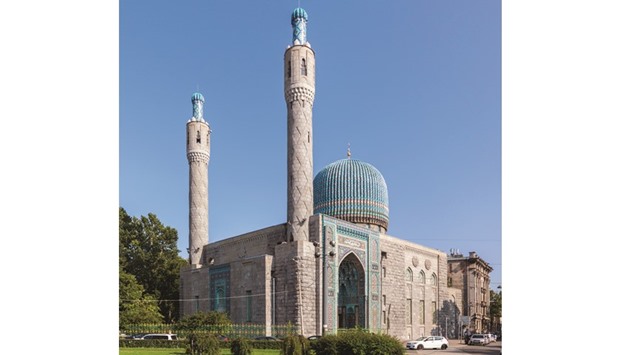While a number of post-Soviet states in Central Asia have already opened their finance industry to Islamic banking, Russia so far has been a bit of a laggard to do so. However, the situation is changing now with the number of Russian Muslims growing and ever more companies opening up to the halal industry for which investments have been sizeably increasing in the recent past.
In a latest development, a memorandum of understanding was signed last week by the Jeddah-based Islamic Corp for the Development of the Private Sector (ICD), the private arm of the Islamic Development Bank, and the International Association of Islamic Business (IAIB), a non-commercial organisation newly established in Moscow with the purpose of developing economic ties with Islamic countries. The MoU seeks to promote Islamic Finance in Russia, as well as foster closer ties with Islamic finance institutions and attract investors from Islamic countries with the ICD as a core partner.
According to IAIB president Marat Kabayev, the collaboration would encompass the introduction of Islamic banking products in Russia by inviting foreign Islamic banks to set up branches in the country. As a next step, they would lobby for adaptation of the Russian banking laws and regulations to enable domestic incorporation of Islamic banks and financial services firms.
The ICD said that it will provide information and expertise exchange in order to develop effective cooperation, which would include organising joint professional programmes, market research, workshops, publications, study tours and assistance in production and certification of halal goods.
The plan to strengthen Islamic finance makes perfect sense when the numbers are taken into account. Islam is, in fact, the second most widely professed religion in Russia behind Orthodox Christianity. Up to 14% of Russians – or more than 20mn people – say that their faith is Islam, many of them Tartars and peoples from the Caucasus and the Volga Basin.
Moscow, in turn, has an estimated 1mn Muslim residents and more than 1.5mn additional Muslim migrant workers. Overall, there are currently around 8,000 mosques in Russia.
So far, Islamic finance is not unheard of in Russia, but the industry is still in its infancy. Some banks such as Moscow Industrial Bank have introduced participation banking services and products focusing on industry, construction and agriculture or Haj financing arrangements. It remains a participation banking model since current Russian laws do not allow Islamic banks to operate in compliance with Shariah rules.
Last year, Russia’s first Islamic banking centre was established in Tatarstan’s capital Kazan with Southeast Asian and Middle East partnership funding. This “Center of Partnership Banking” is backed by one of the largest banking groups in Tatarstan, Tatfondbank, and is expected to become a fully-fledged Islamic banking division when the laws support that.
State-owned banking giant Sberbank last year hired an experienced top manager of Islamic finance to develop a halal line of business and has started a participation banking pilot project in Tatarstan.
“This is the idea we want to develop very seriously. It is necessary for the country to diversify funding sources,” Sberbank deputy chairman Maxim Poletaev told Russia Today, adding that the Central Bank of Russia is discussing changes in legislation that could allow Islamic banking in the entire country “soon.” Until then, any projects need to be carried out within the framework of existing legislation.
Another bank tapping into Islamic finance in Russia is Vnesheconombank, a state development and trade financing bank that intends to use Islamic finance to support export-import deals and project financing domestically and abroad. For example, cross-border Islamic finance projects are planned with Pakistan as a way to strengthen political and economic ties between the two countries.
For other halal products and services, a regulatory body to certify, control and monitor them was established under the name of “International Center for Halal Standardisation and Certification in the Russian Federation” in Moscow as a member of the World Halal Council. The role of the organisation is to issue halal certification to, by now, around 200 companies and their products, which are exported to different Muslim nations, including Central Asian countries, Pakistan and the Gulf region.
The most important events in 2017 for the promotion of Islamic finance and the halal industry in Russia are KazanSummit, the major Russian platforms for discussion of Islamic finance prospects and developments organised by the Tatarstan Investment Development Agency and held from May 18 to 19, in Kazan, and the annual Halal Expo to be held in Moscow from November 16 to 18.

The St Petersburg Mosque (Source: Alex ‘Florstein’ Fedorov/CreativeCommons). More than 20mn Muslims live in Russia. Moscow, in turn, has an estimated 1mn Muslim residents and more than 1.5mn additional Muslim migrant workers. Overall, there are currently around 8,000 mosques in Russia.
